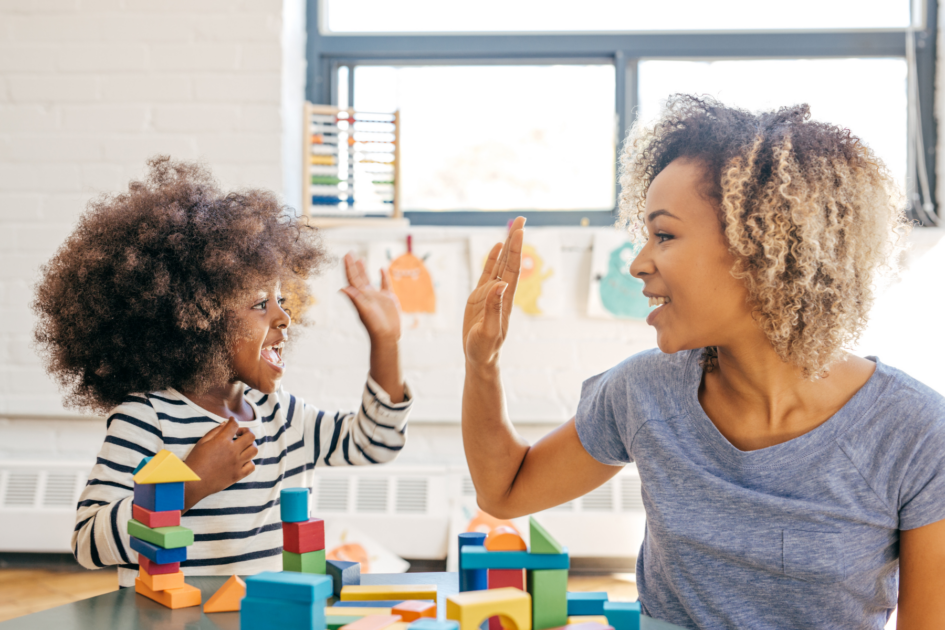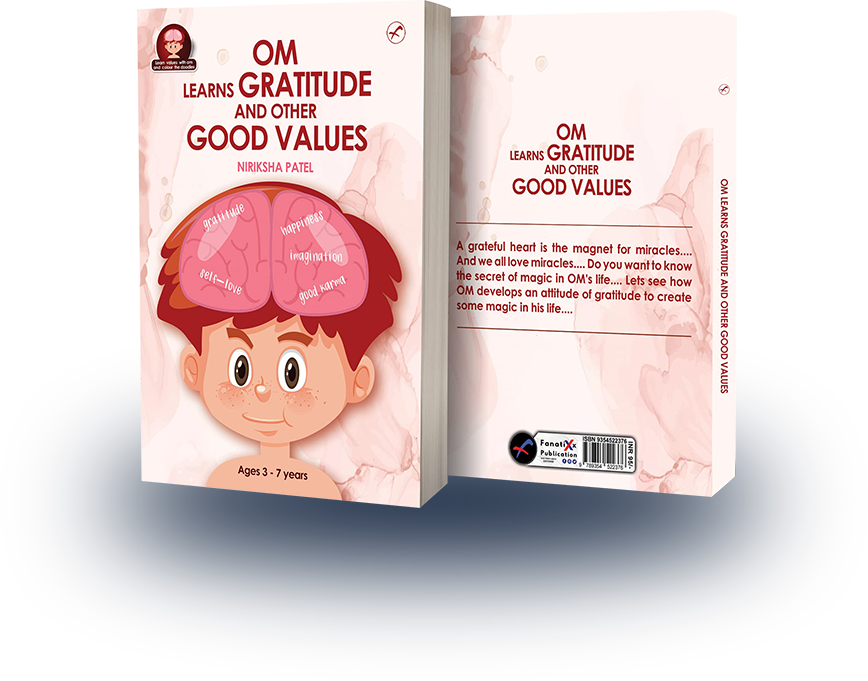Table of Contents[Hide][Show]
Introduction
Welcome to the world of threenagers! Three-year-olds are known for their boundless energy, growing independence, and, yes, their spirited expressions of will.
Picture this: your little one vehemently insists on wearing their superhero costume to bed, or perhaps decides that breakfast should be ice cream topped with sprinkles.
It’s their burgeoning sense of self and creativity coming alive, in the most unpredictable ways!
But with these Parenting Advice for 3 Year Olds this stage can be as rewarding as it is demanding. This blog will delve into effective strategies to nurture, discipline, and connect with your 3-year-old.
For instance, we’ll explore how turning routine tasks into playful adventures can transform bedtime resistance into a dreamy quest for sleep, ensuring a joyful and enriching journey for both of you.
Together, we’ll navigate the highs and lows of parenting a threenager, turning potential challenges into opportunities for growth and bonding.
Also read: Harnessing the Power of Positive Reinforcement: 10 Effective Tips for Parents
Understanding Your 3-Year-Old
Understanding your 3-year-old can feel like deciphering a complex puzzle with missing pieces. But don’t worry, it’s all part of their growth.
Language and Communication
Ever notice how your 3-year-old suddenly has a lot to say? That’s because, at this age, they’re learning new words every day!
For example, one minute they might be asking you endless questions like, “Why is the sky blue?” and the next, telling you a story about their imaginary friend.
Engaging in conversation with your child and reading to them can significantly enhance their vocabulary and communication skills.
Physical Growth and Motor Skills
Your 3-year-old is probably always on the move, jumping, running, and climbing on everything in sight.
Remember the time they tried to climb the kitchen counter to reach the cookie jar? This adventurous behavior is them testing their physical limits. It is important to give them active play at this age to develop strong motor skills and coordination.
Emotional Development
Three-year-olds are on a rollercoaster of emotions. They might throw a tantrum over not getting the blue cup and, moments later, be giggling uncontrollably because you made a funny face.
It’s their way of expressing themselves while they learn to manage big feelings. Studies suggest that acknowledging and talking about these emotions with your child helps them develop empathy and emotional intelligence.
Social Skills
At this age, your child is becoming more interested in playing with others. However, sharing might not be their strongest suit yet.
Remember the playdate when they insisted that all toys were “mine”? It’s normal. They’re learning about personal boundaries and relationships. Playdates and group activities can foster social skills and cooperation among young children.
Cognitive Abilities
Three-year-olds are curious thinkers. They’re starting to understand concepts like time, like when they ask, “Is it tomorrow yet?” right after being told they can go to the park tomorrow.
They also love asking “why” questions, trying to understand the world around them. Cognitive studies highlight the importance of nurturing this curiosity through exploration and problem-solving activities.
Studies in developmental psychology continually support the idea that this age is crucial for laying the groundwork for healthy growth and learning. By providing a supportive, engaging, and loving environment, you’re not just helping your child navigate the terrific threes; you’re setting them up for future success.
Check out: How to Deal with Your Child’s Temper Tantrums: 15 Effective Tips
Parenting Advice for 3 Year Olds
It’s your guide through the roller coaster ride of early childhood, ensuring every challenge is met with love, patience, and a bit of creativity.
Mindful Observation
Practice the art of silently observing your child during play, noting their interests, challenges, and how they solve problems.
Example: Spend a week making short diary entries about your child’s play. You might notice they’re particularly frustrated with puzzles but persist until they’re solved, showcasing budding problem-solving skills and resilience.
Observational learning theories suggest children learn a great deal from their environment. Your mindful observations can guide you to tailor support specifically to their developmental needs.
Nature as a Teacher
Integrate outdoor learning into daily play, using nature to teach concepts like counting, colors, and science in an engaging environment.
Example: Count pine cones on a walk, name colors of flowers, or discuss why leaves fall, turning a simple outing into a fun, educational experience.
Environmental psychology stresses the importance of nature in human well-being and cognitive development, suggesting that early exposure to natural settings can bolster creativity and reduce stress.
The Power of Storytelling
Use storytelling to navigate difficult behaviors, creating relatable stories where characters face similar challenges and learn to overcome them.
Example: If your child struggles with sharing, you might tell a story about a lonely dragon who learns the joy of sharing his treasure with friends.
Narrative psychology indicates that stories are a powerful way to shape understanding and behavior, providing a safe space for children to explore solutions to their own challenges.
Embracing Boredom
Instead of constantly entertaining your child, allow them to experience boredom, fostering creativity and self-driven discovery.
Example: During a quiet afternoon, resist the urge to fill the schedule, letting your child decide what to do. They might end up creating an imaginative game with their toys.
Research in developmental psychology suggests that boredom can act as a catalyst for creativity and intrinsic motivation, encouraging children to find internal sources of inspiration and entertainment.
Family Mindfulness Practices
Incorporate simple mindfulness exercises into your family routine to enhance emotional regulation and present-moment awareness for both you and your child.
Example: Start a daily “gratitude moment” where each family member shares something they’re thankful for, fostering positive thinking and emotional resilience.
Studies on mindfulness have shown significant benefits in reducing anxiety and improving emotional regulation, highlighting its value in early childhood development.
Interactive Reading Sessions
Transform reading time into an interactive session where your child helps tell the story, boosting their imagination and comprehension skills.
Example: Ask predictive questions like, “What do you think will happen next?” or let them finish sentences, turning storytime into an engaging learning experience.
Language acquisition research underscores the importance of interactive reading in enhancing vocabulary, comprehension, and narrative skills in early childhood.
Parent-Child Collaboration Projects
Engage in projects that require teamwork, such as building a birdhouse or starting a small garden, teaching planning, cooperation, and the joy of achieving a goal together.
Example: Choose a simple recipe to cook together once a week, allowing your child to help with measuring and mixing, celebrating the meal you made as a team.
Social learning theory and research on cooperative learning show that collaborative tasks can significantly enhance problem-solving skills and social development.
Cultural Exploration Activities
Broaden your child’s worldview through activities that explore different cultures, promoting inclusivity and curiosity about the world.
Example: Dedicate one evening each month to exploring a new culture through food, music, stories, and crafts. If you’re exploring Japanese culture, you might make simple sushi rolls together, listen to traditional Japanese music, and read a folk tale.
According to cultural psychology, early exposure to diverse cultures can enhance social empathy, cognitive flexibility, and an appreciation for diversity. This approach not only fosters open-mindedness but also prepares children to thrive in a globally interconnected world.
Tech Time with a Twist
Instead of viewing screen time as purely recreational, transform it into an interactive and educational experience that supports learning and creativity.
Example: Use educational apps to create a digital scavenger hunt where your child needs to solve puzzles or find items based on stories or themes they’ve learned. For instance, after reading about marine life, the scavenger hunt could involve identifying different sea creatures.
Cognitive research suggests that interactive and educational digital content can complement traditional learning by enhancing engagement, problem-solving skills, and information retention. By actively participating in digital learning activities, children can develop a more nuanced understanding of technology as a tool for learning and creativity.
Emotion Mapping
Help your child understand and manage their emotions by creating an “emotion map” together, a visual tool that helps identify what they feel and why.
Example: Draw a simple chart with faces expressing different emotions like happiness, sadness, anger, and fear. When your child feels a strong emotion, help them express it by pointing to or drawing on the map, then discuss what might have triggered that emotion and how to cope.
Emotional intelligence research emphasizes the importance of recognizing and naming emotions as a first step in effective emotional regulation. An emotion map can serve as a concrete tool for young children, who are still developing the vocabulary to express their feelings. This method supports the development of self-awareness, empathy, and problem-solving skills related to emotional experiences.
Also read: The Power of Play | How Games Help Children Thrive
Conclusion
There you have it the Parenting Advice for 3 Year Olds. This journey is quite an adventure, filled with ups and downs, much like a roller coaster ride.
But remember, for every tantrum tackled and tear dried, there’s a beautiful moment of triumph waiting just around the corner.
These experiences aren’t just challenges; they’re opportunities to grow closer and build a bond that lasts a lifetime.
So, to all the incredible parents out there in the thick of the threes, keep your head up and your heart open.
You’re doing an amazing job, and every little victory with your three-year-old is a testament to your patience, love, and dedication. Here’s to the journey—tantrums, tears, and all the triumphs that make it all worthwhile. You’ve got this!


 Transforming Pain into Power With Inner Child Healing Journal Prompts
Transforming Pain into Power With Inner Child Healing Journal Prompts